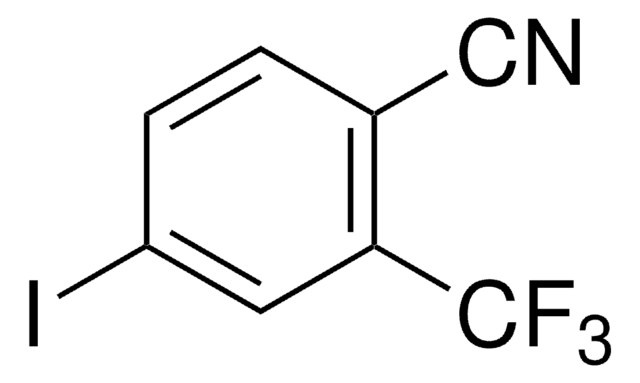Y0001572
Atovaquone
European Pharmacopoeia (EP) Reference Standard
Synonim(y):
Mepron, trans-2-[4-(4-Chlorophenyl)cyclohexyl]-3-hydroxy-1,4-naphthalenedione
About This Item
Polecane produkty
klasa czystości
pharmaceutical primary standard
rodzina API
atovaquone
producent / nazwa handlowa
EDQM
Zastosowanie
pharmaceutical (small molecule)
format
neat
temp. przechowywania
2-8°C
ciąg SMILES
OC1=C([C@H]2CC[C@@H](CC2)c3ccc(Cl)cc3)C(=O)c4ccccc4C1=O
InChI
1S/C22H19ClO3/c23-16-11-9-14(10-12-16)13-5-7-15(8-6-13)19-20(24)17-3-1-2-4-18(17)21(25)22(19)26/h1-4,9-13,15,26H,5-8H2/t13-,15-
Klucz InChI
KUCQYCKVKVOKAY-CTYIDZIISA-N
Szukasz podobnych produktów? Odwiedź Przewodnik dotyczący porównywania produktów
Opis ogólny
Zastosowanie
Działania biochem./fizjol.
Opakowanie
Inne uwagi
Kod klasy składowania
11 - Combustible Solids
Klasa zagrożenia wodnego (WGK)
WGK 3
Temperatura zapłonu (°F)
Not applicable
Temperatura zapłonu (°C)
Not applicable
Choose from one of the most recent versions:
Certyfikaty analizy (CoA)
Sorry, we don't have COAs for this product available online at this time.
If you need assistance, please contact Obsługa Klienta
Masz już ten produkt?
Dokumenty związane z niedawno zakupionymi produktami zostały zamieszczone w Bibliotece dokumentów.
Nasz zespół naukowców ma doświadczenie we wszystkich obszarach badań, w tym w naukach przyrodniczych, materiałoznawstwie, syntezie chemicznej, chromatografii, analityce i wielu innych dziedzinach.
Skontaktuj się z zespołem ds. pomocy technicznej





